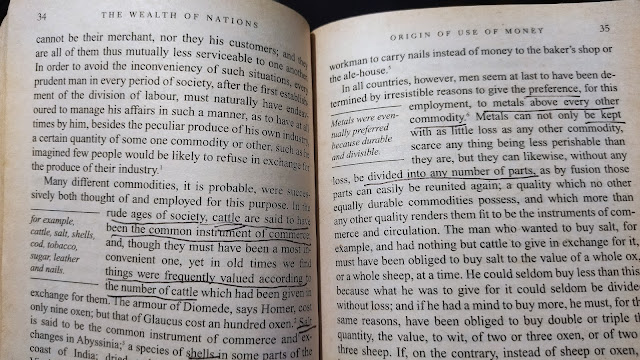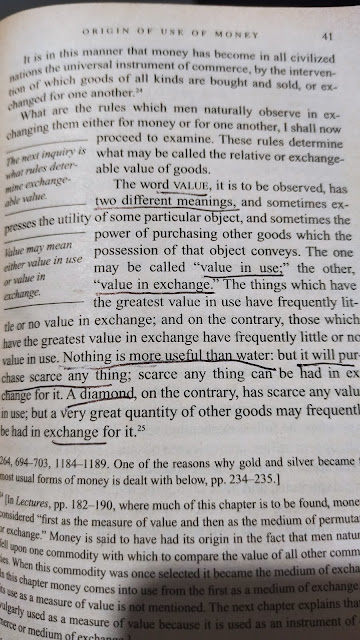Last night, my second girl and 12 yo daughter Bien Mary, who just finished Grade 7, going to Grade 8 this coming school year, asked me, "Dad, what happens if there is no money in the world?" I briefly answered it with "then people will go for barter, like several centuries ago." She followed it up with "And what happens if there is no politics, no government?" Hehe, my second girl has some DNA of me -- non fan of more politics, more government. My first daughter too, Elle Marie, told me she finds her subject in Grade 11 "Politics and Government" confusing and non-interesting.
Anyway, I checked Adam Smith's "The Wealth of Nations" (1776), Book 1 Chapter 4 is "Of the origin and use of money." See some origins or pre-money, pre-coins, form of exchange: use of cattle, salt, shells, tobacco, sugar, etc. Then people realize the inconvenience of carrying and exchanging different commodities. So they later use metals as form of exchange.
Then people experienced the inconvenience of metals -- weighing it, assaying it whether it's real gold or silver or other metals, or mixed with lower-value metals. So they began to use coins. The British pound sterling, the Roman copper, etc.
And coins were invented, used as form of exchange.
Then Smith's discussion of two types of value -- use value and exchange value. He used two very good examples. Water has high use value but little exchange value because it is widely available. Diamond has little use value for ordinary people but has very high exchange value for other people.
Bottomline is scarcity of a commodity. Air is very useful, so river or sea water, but since they are abundant and non-scarce in many places, people won't bother with their exchange value.
Control of money. By governments, of course. Modern governments print money, control how much to be released in circulation, when to "mop" it back to the central bank, and so on.
So there. And thanks to my two girls, the younger one especially, she accidentally pushed me to read that part of The Wealth of Nations.



No comments:
Post a Comment